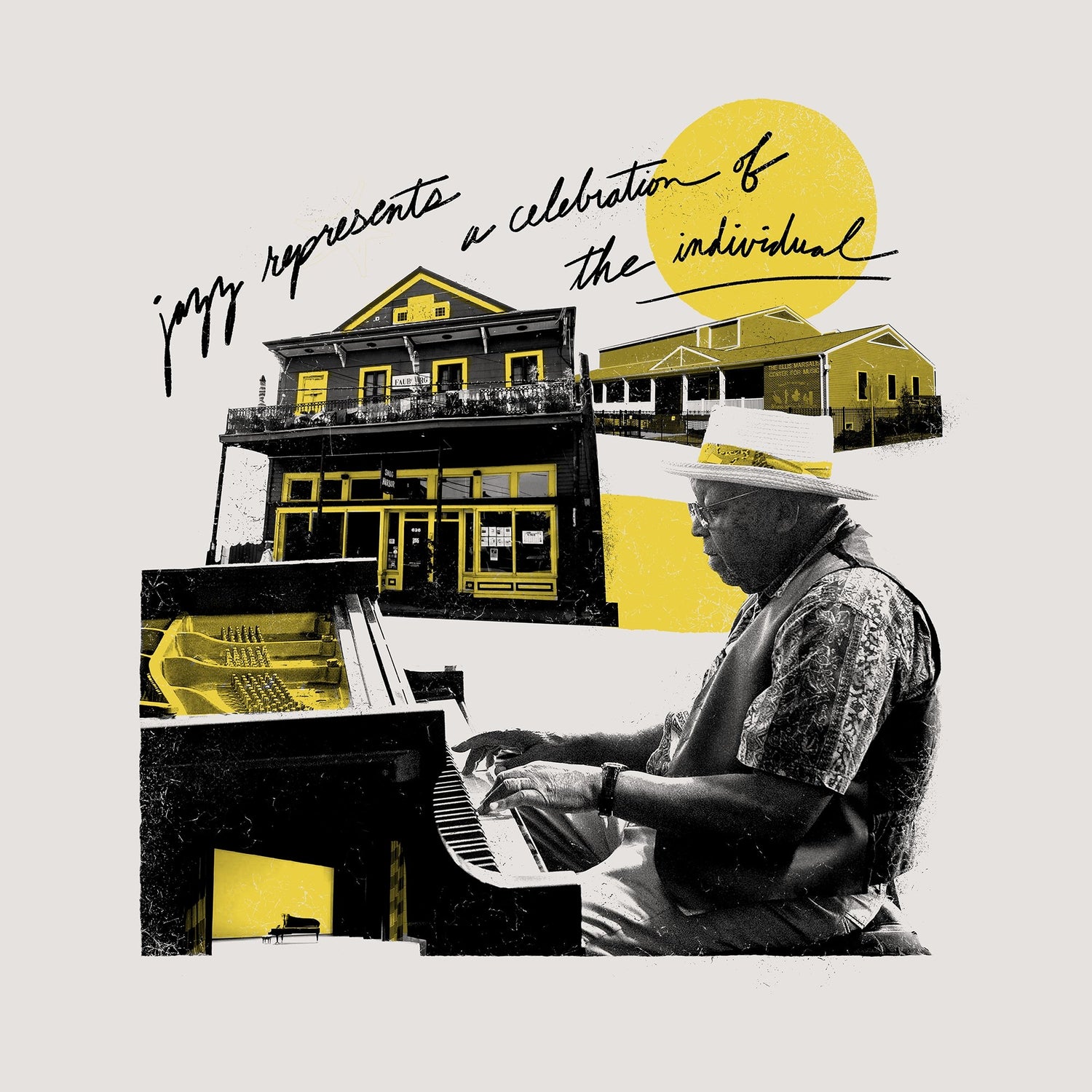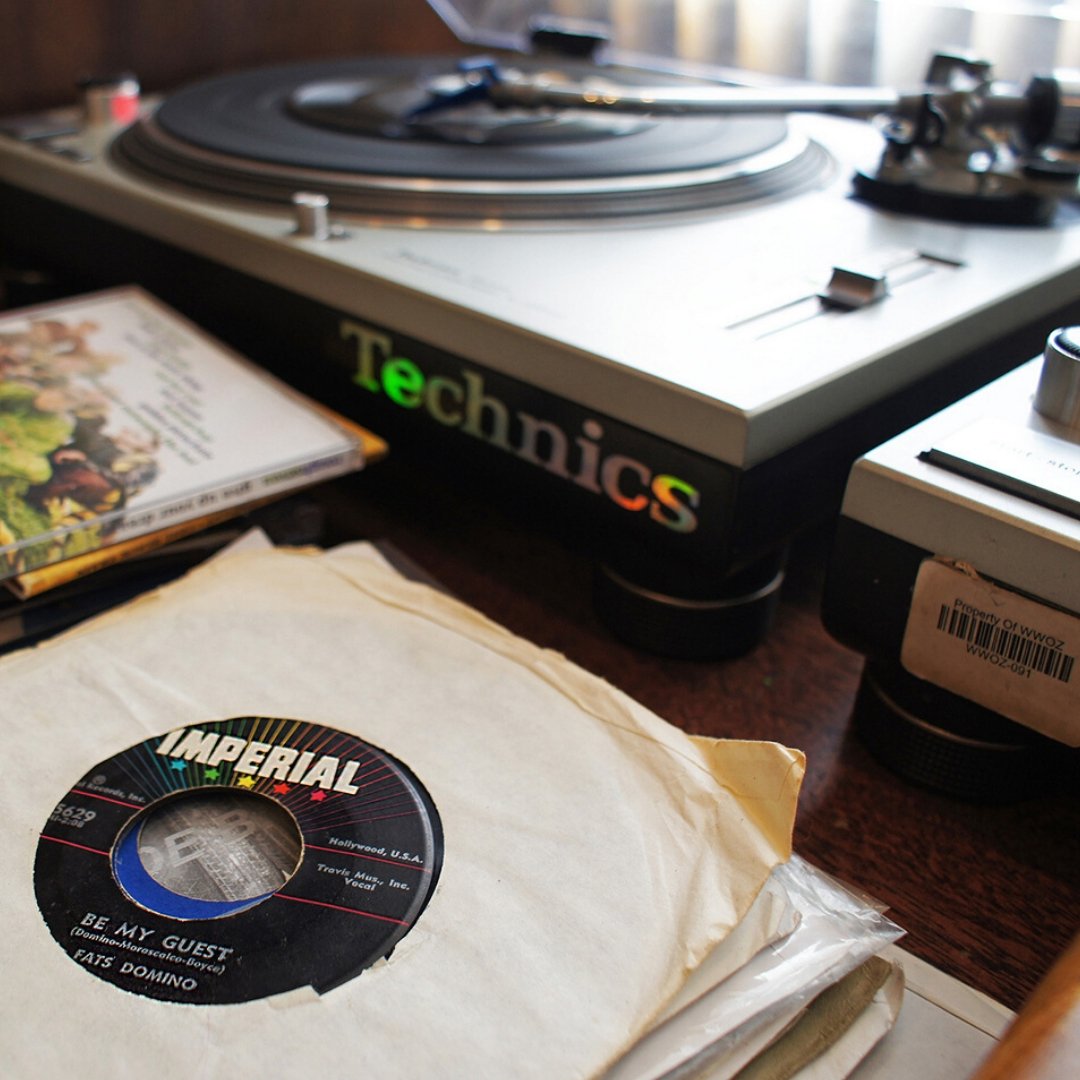Ellis Marsalis was an integral part of the New Orleans tradition of passing on a passion for music to the next generation. Born in New Orleans in 1934, he grew up in the small, working-class, music-filled neighborhood of Gert Town. He would become a renowned jazz musician, educator, and social activist. With his wife, Delores, and their six sons, the Marsalis Family would eventually be referred to as Jazz Royalty.
Marsalis' academic career began in the fifties when he studied classical music at Dillard University. He completed graduate school at Loyola in 1986, and also received honorary degrees from numerous universities including Dillard (‘89); Tulane (‘07); Juilliard, Ball State, and Virginia Commonwealth University (‘10).
He had an impressive resume – Professor of African American music and jazz improvisation at Xavier University – The coordinator of jazz studies at Virginia Commonwealth University – The director of jazz studies at the University of New Orleans. Ellis Marsalis was more than qualified to know a thing or two about music education. He served as a mentor and teacher to iconic musicians such as Terrance Blanchard, Marlon Jordan, and Harry Connick Jr.
Everyone’s Teacher
What classified Ellis Marsalis as a legend wasn't just his success as a musician, but the influence he had on music education. He was a leading voice stressing the importance of jazz studies in schools and within the community.
Marsalis prepared his students for the hardships of a career in the arts by providing them with the tools they needed to succeed during their education. An advocate for music and arts education, he taught for over a decade at his home town’s first full-time public arts high school, New Orleans Center for Creative Arts. He was even inducted into the Louisiana Music Hall of Fame in 2008.
“Ellis Marsalis is an iconic figure in New Orleans who touched and inspired the lives of countless young New Orleans musicians. We are so fortunate for all that he championed in the arts and for his vast and unmatched musical legacy. We honored Mr. Marsalis along with the Jazz Journalists Association on International Jazz Day in 2018, and have been blessed to share so many intimate concerts and educational programs in our performing arts center over the years. He will never be forgotten, and we will continue to work to preserve and share the Marsalis family legacy in music and education.” – Greg Lambousy, the director of The New Orleans Jazz Museum.
In the 1940s, if you found yourself in a club playing Jazz in New Orleans, you would hear either Dixieland or Rhythm and Blues. Ellis chose a career in bebop, a more difficult path to take as a musician. Marsalis rejected the mainstream’s opinion that gave Dixie and R&B a monopoly over the live music scene in New Orleans. He looked back to the work of Charlie Parker and Dexter Gordon and their innovations to jazz that had originally inspired him as an artist and remained loyal to the freedom that is bebop.
Marsalis’ dedication, discipline, and passion were passed on to his six multi-talented sons. Collectively, their list of accomplishments in such fields as poetry, music, and community outreach is ever-growing. The key to their success is in the way Marsalis raised them by emphasizing the virtue of respect not just in music, but in how they valued themselves and treated others. Ellis Marsalis is a legend in many aspects of his life, but he excelled most in holding down his title of The Patriarch of the Marsalis family. The NEA Jazz Masters is the highest honor an American jazz musician can receive. In 2011, Marsalis and his sons became the first group to ever receive the award.
New Orleans might have a reputation for being laid back, but we take our music seriously. Tangled up with our culture and tradition, our music is who we are. Marsalis was a key influencer who opted for a disciplined musical approach, adhering to the “rigor and formality of jazz’s golden age.”
“Ellis Marsalis should be considered the Danny Barker of his generation” – Zack Smith, New Orleans photographer, and musician.
Musician Danny Barker forever altered the soundtrack of New Orleans, and became an essential piece of music history by preserving the tradition of brass band music through the Fairview Baptist Church Christian Band. Barker strived for the people of the world, not just New Orleans, to understand the importance of the marvelous gift of jazz. Marsalis is relatable to Barker since each artist had a massive, multi-faceted, historical impact on their community through music, the effects of which lead right up to the music we hear today.
"Ellis had very high standards and he didn't relax them for anyone in any way. He had been through the ups and downs of playing jazz, promoting jazz, teaching jazz, and raising kids in jazz, and those standards got him through. He expanded my ideas of the music, the people who did it, and how they did it. And he didn't idolize or sensationalize any of it. He did it matter of factly in [a] very Zen way that was both street and erudite. He was one of the cats and he was a sensei at the same time. He had gigs at the Playboy Club when that place was hip, happening, and wild." – David Kunian, documentarian and curator for The New Orleans Jazz Museum
Ellis Marsalis died on Wednesday April 1, 2020 due to complications related to Covid 19. Marsalis truly valued the importance of jazz music education in New Orleans and we will forever cherish the impact he made on our history.
As a city, we will be counting down the days till we are able to mourn our loss together, giving Ellis Marsalis the traditional New Orleans jazz funeral he deserves.
referencing:
https://www.marsalismusic.com/marsalis-family
https://www.nola.com/entertainment_life/music/article_bbdaf4c4-7481-11ea-92ae-1758b23c65c8.html
http://www.offbeat.com/articles/ellis-marsalis-interview/









Leave a comment
All comments are moderated before being published.
This site is protected by hCaptcha and the hCaptcha Privacy Policy and Terms of Service apply.